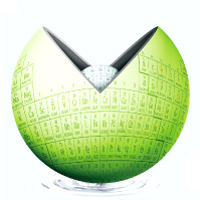
Published for geochemistry community from Geochemical Society of Japan.
Examination of analytical conditions of cerium (Ce) isotope and stable isotope ratio of Ce in geochemical standards
Geochemical Journal, Vol. 53, No. 5, P. 293-304, 2019
ABSTRACT
The cerium isotope ratio (δ142Ce), a novel proxy reflecting the paleoredox condition, yields more quantitative information related to the redox condition than Ce anomaly alone. However, sample amounts and analytical precision represent bottlenecks for Ce isotope measurements using multi-collector (MC-)ICP-MS. Sample treatment processes and analytical conditions of MC-ICP-MS using desolvating nebulizer were examined for this study. Our new cation exchange process removes most of the Ba, which is worthwhile for REE measurement. The examination of analytical conditions, including the sampling cone, torch Z position, Guard Electrode, Ar sweep, and N2 gas greatly decreases the oxide formation ratio from approximately 1% (typical wet plasma mode) to less than 0.05%, which caused the great increase in the precision of Ce isotope measurement. The best reproducibility for δ142Ce achieved in repeated measurements of NIST solution was ±0.020‰. The typical reproducibility was about ±0.030‰. The required Ce amount of the measurement was also decreased from 0.2 μg to 0.05 μg. Moreover, the current study measured δ142Ce of 5 USGS and 17 GSJ standard rocks. The Ce stable isotope ratio of standard igneous rocks shows no significant isotope fractionation, although δ142Ce of JDo-1 and JMn-1 are fractionated respectively from standard NIST solutions of +0.134 ± 0.025‰ and +0.110 ± 0.025‰. The δ142Ce fractionation of sedimentary rocks can result from the adsorption reaction of Ce.KEYWORDS
cerium isotope ratio, MC-ICP-MS, analytical condition, geochemical standards, desolvating nebulizer- Published : 2019
- Released on J-STAGE : 2019/10/08
- Received : 2019/03/26
- Accepted : 2019/07/03
- DOI : https://doi.org/10.2343/geochemj.2.0567
- J-STAGE URL : https://www.jstage.jst.go.jp/article/geochemj/53/5/53_2.0567/_article/-char/ja
- J-Online ISSN: 1880-5973
- Print ISSN : 0016-7002
- ISSN-L : 0016-7002
All Issues
- Vol.59, 2025
- Vol.58, 2024
- Vol.57, 2023
- Vol.56, 2022
- Vol.55, 2021
- Vol.54, 2020
- Vol.53, 2019
- Vol.52, 2018
- Vol.51, 2017
- Vol.50, 2016
- Vol.49, 2015
- Vol.48, 2014
- Vol.47, 2013
- Vol.46, 2012
- Vol.45, 2011
- Vol.44, 2010
- Vol.43, 2009
- Vol.42, 2008
- Vol.41, 2007
- Vol.40, 2006
- Vol.39, 2005
- Vol.38, 2004
- Vol.37, 2003
- Vol.36, 2002
- Vol.35, 2001
- Vol.34, 2000
- Vol.33, 1999
- Vol.32, 1998
- Vol.31, 1997
- Vol.30, 1996
- Vol.29, 1995
- Vol.28, 1994
- Vol.27, 1993
- Vol.26, 1992
- Vol.25, 1991
- Vol.24, 1990
- Vol.23, 1989
- Vol.22, 1988
- Vol.21, 1987
- Vol.20, 1986
- Vol.19, 1985-1986
- Vol.18, 1984
- Vol.17, 1983
- Vol.16, 1982
- Vol.15, 1981
- Vol.14, 1980
- Vol.13, 1979
- Vol.12, 1978
- Vol.11, 1977
- Vol.10, 1976
- Vol.9, 1975
- Vol.8, 1974
- Vol.7, 1973
- Vol.6, 1972-1973
- Vol.5, 1971
- Vol.4, 1970-1971
- Vol.3, 1969-1970
- Vol.2, 1968
- Vol.1, 1966-1967
Current Issue:
Stats:
Impact Factor: 1.6 (2024)
Submission to final decision: 9.6 weeks (2022)




